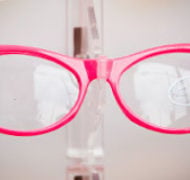Pseudo Salvation: When Science Can’t Save Us
Blog / Produced by The High Calling
I have raised three sons. My oldest son is in college; my middle son just finished high school; and my youngest just finished middle school. All three went to public schools. As a father raising boys in a fallen world, I am very aware of how the philosophies and ideals of our culture are often antithetical to those central to our home. The teenage years especially are a very important time, and teenage minds are open to a host of influences.
Of course it doesn’t end in the teenage years. I have spent the past twenty-two years teaching at a secular college, active in ministry to the many Christian college students who pass through there. And I have also been active in ministry in our church to adults. We live in a society that does not honor God, and the values of that society press in on us from many directions.
That is, they do so unless we resist them. And to resist them, we need to know what they are. This is important to me as I try to follow Christ myself. It is doubly important as I tried to raise and equip my sons to serve Him faithfully.
Now in many cases, the secular influences of our culture are obvious. Sexual immorality is rampant in films, television, and music where it is often portrayed as the norm. Violence is glorified as well, not just in movies and certain genres of music, but even in the video games kids play. Not to mention the fabulous wealth of celebrities who become the default role models in our culture (for adults as well as youth). Even if we criticize these athletes, entertainers, and even corporate executives for their immorality, it is still tempting to aspire to their wealth and fame.
Other cultural philosophies, however, are more subtle and can often be seen within the church, even though they are both false and damaging. One such pervasive philosophy in American culture is that technology and engineering will solve our problems. From a spate of modern films to its unadulterated form as the defining philosophy of Disney’s Epcot center, we are led to believe that there is nothing humans cannot achieve through science and ingenuity.
Do we need a bridge constructed in a difficult place? Engineering and the science behind it has proven capable for the task. Do we need faster computers? Engineers have given us that as well. They have not only given us powered flight, but taken us to the moon. A good friend recently had cancer removed from one of his organs; it was done by a doctor-guided robot.
And I’m thankful for these things—for the bridges that hold my car, computers that allow me to write and communicate, and the successful cancer surgery that may have saved my friend’s life. Unfortunately, it is far too easy now to trust that engineering will be able to solve all of our problems: war, poverty, hunger, soil erosion, oil spills, nuclear disasters, and the new diseases and viruses that seem to emerge faster than we can come up with cures for the old ones.
To the extent that sin is at the root of so many other human problems that we must overcome – either directly or indirectly – it should be easy to see that we will not find ultimate solutions even to these problems through engineering. And I know that sin itself will not be overcome by some high tech solution.
We can and should appreciate the minds God has given us, which are capable of the science, the creativity, and the design behind our engineering. But we must be very careful not to place our hopes there.
Image by Jenny Rain. Used with permission. Sourced via Flickr. Post by Matthew Dickerson, author of The Mind and the Machine: What it Means to Be Human and Why It Matters.





